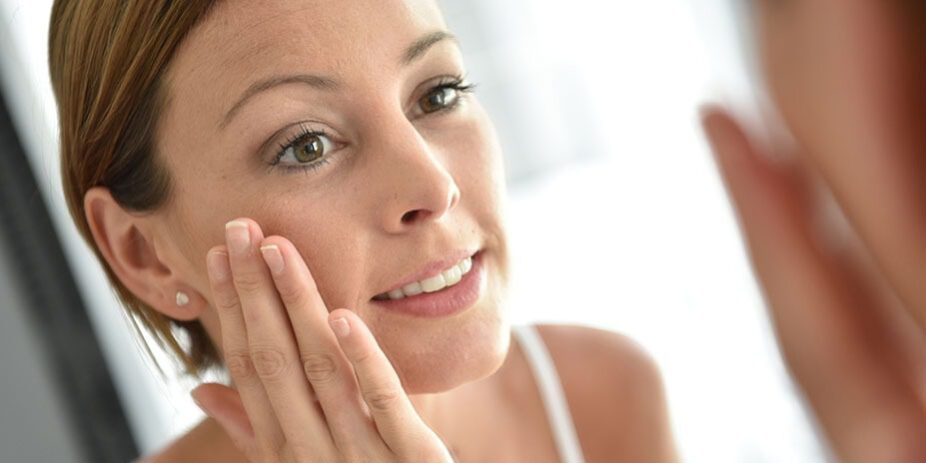What is Inflamm’aging & How Can You Fight It?
There are certain side effects of aging that you can anticipate. Many people experience sensory decline, particularly in vision and hearing, and there’s no avoiding the aches and pains that come with getting older. Research suggests that your risk for developing chronic diseases increases with age as well but what you may not realize is that inflammation plays a key role.
Inflammation is part of the body’s protective response to injury. When you sustain a wound (like a cut or scrape), the immune system sends white blood cells to the affected area to fight bacteria and jump-start the healing process. This is acute inflammation and it’s an essential bodily process. Invisible, long-lasting inflammation that doesn’t directly result from an injury, however, can be quite damaging.
New medical research suggests that a specific type of inflammation may speed the progression of age-related chronic diseases – it’s called inflamm’aging. Here’s what you need to know about it and how it can affect your skin as you get older.
How Inflammation and Aging Affect Your Skin
You’ve heard of inflammatory skin conditions like psoriasis and atopic dermatitis, and you’re probably familiar with triggers for skin inflammation like poison ivy, drug reactions, and bacterial skin infections. But how does chronic low-grade inflammation affect your skin?
In recent years, scientists have discovered a link between biological age and chronic inflammation. To put it simply, the older you get the more likely you are to experience the negative effects of low-level but long-lasting inflammation. Inflamm’aging is the term used to describe this phenomenon.
When you’re young, your body responds quickly to injuries and foreign invaders like bacteria and viruses. Once the threat has been neutralized, the inflammation triggered by the resulting immune response goes away. The immune system is regulated by the balance between pro-inflammatory and anti-inflammatory factors but, as you age, the levels of pro-inflammatory factors tend to rise. This shifting balance can wreak havoc on your body and on your skin.
It’s natural to develop fine lines and wrinkles as you age but inflamm’aging speeds up the process of skin aging. It damages the skin cells and destroys collagen – it can also weaken the skin’s protective barrier.
Your skin is resilient, but it will eventually start to show the effects of age if you don’t take proactive measures to protect it. Chronic low-level inflammation can accelerate the formation of wrinkles and other age-related skin changes like reduced sebum production and loss of elasticity. The sooner you start putting up defenses against inflamm’aging the longer you can hold off these effects.
9 Tips for Fighting Stress & Inflammation

Some of the simplest skincare habits make the biggest difference. Just washing your face twice a day and applying moisturizer can go a long way in protecting your skin against the visible effects of aging. Even if you take care of your skin, however, you could experience the effects of inflamm’aging.
The two most significant factors that impact inflamm’aging are lifestyle and stress.
Making healthy dietary choices and exercising regularly can help fight inflamm’aging but the stress cycle can be difficult to break. When you’re stressed, you’re more likely to make unhealthy decisions and that just keeps the cycle going. Stress management and healthy lifestyle changes are key steps in fighting inflamm’aging but there are specific things you can do to protect your skin as well.
Here are 9 tips to fight the negative effects of inflamm’aging on your skin…
- Support your skin’s natural defenses against UV radiation, blue light, and other environmental aggressors with antioxidant-rich products.
- Limit your intake of pro-inflammatory foods like processed meats, refined grains, and added sugar, focusing on anti-inflammatory foods like whole grains, fatty fish, nuts, and leafy greens.
- Keep your skincare routine simple – using too many products (or products that are too harsh) can irritate the skin and cause inflammation.
- Wear sunscreen every day to protect your skin against the aging effects of the sun’s UV rays and to decrease your risk of developing melanoma.
- Replace soda and other sugary drinks with anti-inflammatory beverages like black tea, green tea, and coffee.
- Include an anti-aging cream in your daytime and nighttime skincare routines to restore, replenish, and rehydrate the skin.
- Try LED light therapy with an at-home device or regular professional treatments to reduce inflammation and fight the signs of aging.
- Choose a moisturizer appropriate for your skin type to keep the skin hydrated and to keep its natural protective barrier strong so it can defend against triggers for inflammation.
- Toggle the blue light filter on your smartphone and other handheld devices to help prevent oxidative stress from damaging the skin.
A strong skincare routine is the key to preventing inflamm’aging and keeping your skin looking youthful for years to come. While at-home skincare is a must, monthly facials are recommended.
Professional spa facials can be tailored both to your skin type and to your individual skin concerns. A professional esthetician is trained to perform a skin analysis and to customize your treatment as needed to help you achieve the results you want. Paired with a daily at-home skincare routine, monthly facials can help you keep your skin clear and radiant.



















